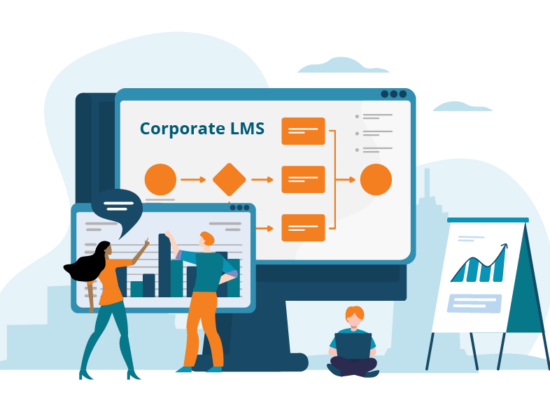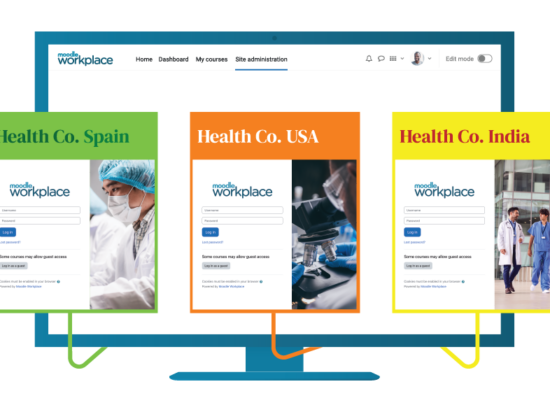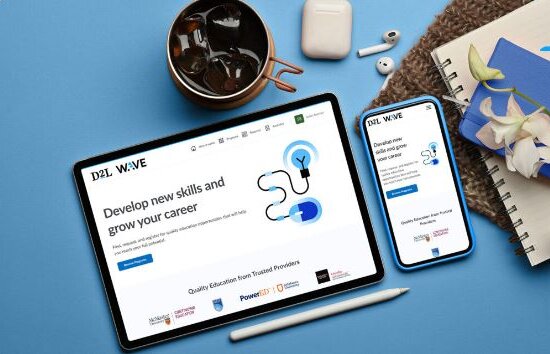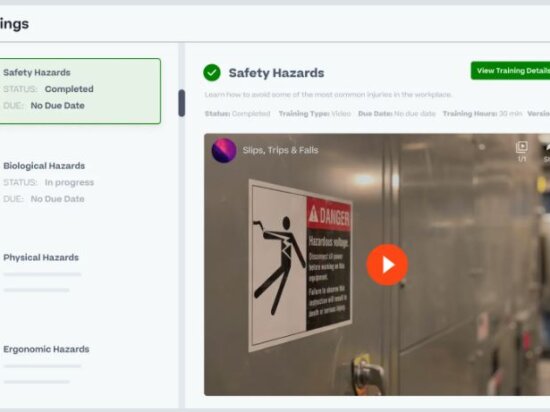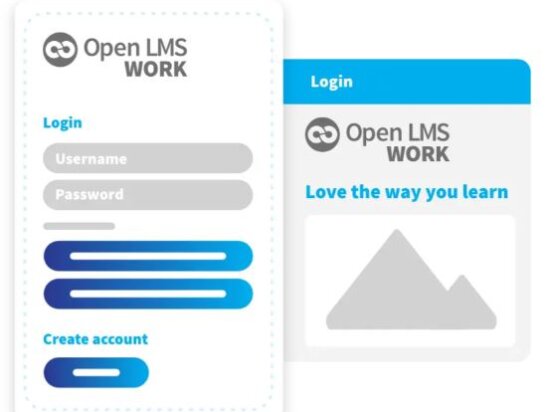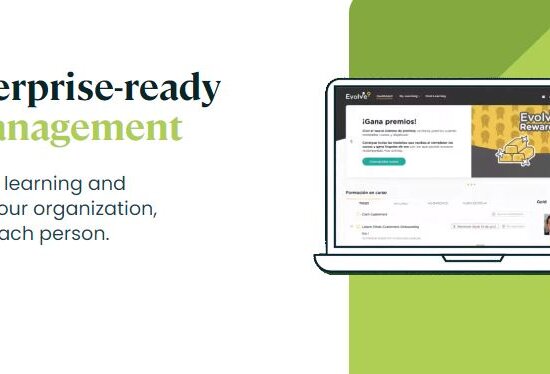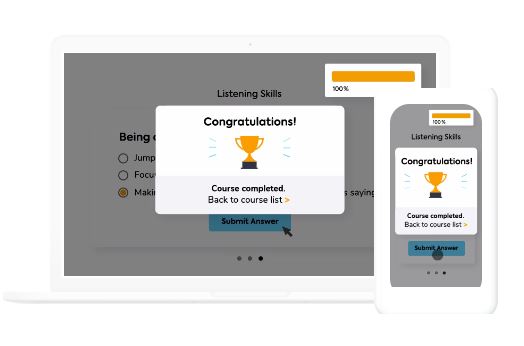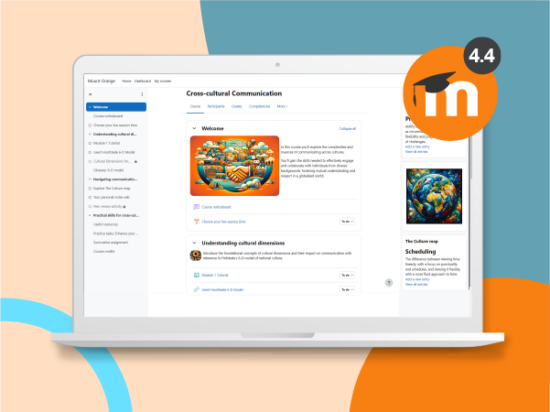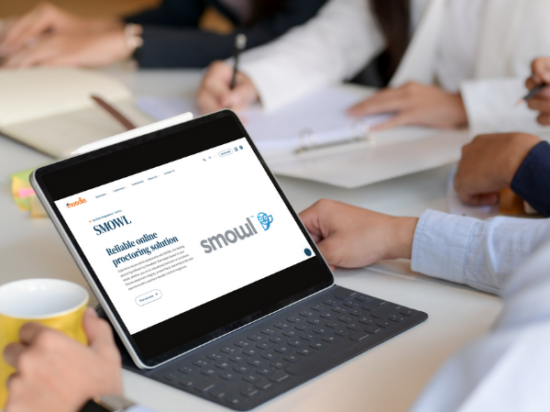In today’s fast-paced business landscape, organisations understand the critical importance of continuous learning and development. To meet the evolving needs of modern workplaces, Enterprise Learning Management Systems (enterprise LMS solutions) play a pivotal role. These systems streamline training, onboarding, and compliance management while driving measurable learning outcomes. Companies trust enterprise LMS, also known as corporate LMS or workplace LMS, to stay ahead of the curve with constant upskilling and reskilling of their employees.
According to a study by IBM, 84% of employees in the top performing companies receive the training they need, compared with 16% in the least-performing companies. Additionally, the study found that every $1 spent on employee training and development results is $30 worth of productivity gains. Needless to say, corporate LMS is a must for companies looking to help improve their employees skills, performance, and productivity.
In this article, we will explore the benefits of LMS for your organisation, top six enterprise LMS solutions in 2023, their unique features, pros, and cons.
What are the Benefits of Enterprise LMS?
Implementing an enterprise LMS brings several advantages for companies:
Streamlined Training and Onboarding
Effective training and onboarding are essential for ensuring that employees have the necessary skills and knowledge to excel in their roles. An enterprise LMS simplifies the process by offering a centralised platform for creating and delivering engaging training content, allowing organisations to streamline their onboarding programs efficiently and increase employee productivity and performance.
The same report by IBM shows that companies that invest in employee training and development experience a 10% increase in productivity.
Enhanced Employee Engagement and Retention
Engaged employees are more likely to stay with an organisation and contribute positively to its success, reflecting its bottom line as well. Compared to the traditional training methods like classroom training, enterprise LMS platforms offer interactive and engaging learning experiences, including multimedia content, personalisation and social learning features, fostering a culture of continuous learning and increasing employee engagement and retention rates.
With a corporate LMS, organisations can deliver training to employees anytime, anywhere, and at a lower cost.
Increased Compliance and Security
Compliance training is crucial for organisations operating in regulated industries such as healthcare, finance, manufacturing, or having specific legal requirements. Enterprise LMS platforms enable organisations to deliver compliance training courses, track completion rates, and generate compliance reports, ensuring adherence to industry regulations and reducing compliance-related risks.
Personalised Learning Paths
As organisations grow and evolve, they may need to train more employees, in new areas, or using new technologies. But each employee has unique learning needs and preferences. An enterprise LMS enables organisations to create personalised learning paths based on individual roles, skills, and career aspirations. This personalised approach enhances the effectiveness of training programs, boosts learner motivation, and accelerates skill development.
Enhanced Reporting and Analytics and Data-Driven Decision Making
Enterprise LMS platforms provide enhanced reporting and analytics capabilities, offering valuable insights into learner progress, course completion rates, performance and overall training effectiveness. Organisations can leverage this data to make data-driven decisions, identify skills gaps, and optimise their training programs to achieve better learning outcomes.
Top 6 Enterprise Learning Management Systems in 2023
#1 – Moodle Workplace
Moodle Workplace is an open-source Enterprise Learning Management System (enterprise LMS) built on the foundation of Moodle, a widely adopted LMS platform. Moodle Workplace extends the capabilities of Moodle with additional features tailored towards the corporate environment, providing a comprehensive solution for organisations of all sizes.
With Moodle Workplace corporate LMS, organisations can create, manage, and deliver customised training programmes that cater to their specific needs.
Who’s Moodle Workplace for?
Moodle Workplace corporate LMS caters to the needs of various industries and organisations, including corporations, government agencies, educational institutions, and non-profit organisations. Its flexibility and scalability make it suitable for small businesses as well as large enterprises.
Moodle Workplace has become a trusted enterprise LMS choice with over hundreds of thousands of organisations worldwide because it offers a variety of features that are specifically designed for corporate training. It provides a centralised platform where employees can access training courses, participate in discussions, and collaborate with colleagues. Moodle Workplace is also highly customizable, allowing all organisations to tailor the platform to meet their specific needs.
Top features
- Customisable dashboards,
- Custom learning paths that are tailored to the specific needs of your organisation,
- Competency-based learning,
- Training and development on-the-go with mobile learning,
- Third-party integrations,
- Multi-tenancy support,
- Automation and certification tracking
- High security,
- Scalability.
Moodle Workplace pros
- Highly customizable enterprise LMS, which allows organisations to tailor the platform to meet their unique needs.
- Provides a centralised platform for workplace learning, making it easier for employees to access training courses and resources.
- Provides cost-effective solutions for workplace learning, especially when compared to other commercial Enterprise Learning Management Systems.
- Moodle Workplace development practices include data privacy and security by design. Additionally, the Moodle community contributes to its security by constantly tracking source code and making the security airtight through public, well-established processes.
- Moodle Workplace integrates with other systems to provide a seamless learning experience for employees.
- This corporate LMS is user-friendly with a clean, intuitive, modern interface.
- Supports enterprises with thousands of users, making it an excellent choice for organisations that are growing rapidly or have a large workforce.
Moodle Workplace cons
- While Moodle Workplace may require some technical expertise for installation, configuration, and maintenance, Moodle’s experienced network of Certified Partners and Service Providers provide expertise in customisation, hosting, support, and training services, tailoring the platform to your organisation’s unique needs.
#2 – D2L Wave
D2L Wave is a cloud-based Enterprise Learning Management System (enterprise LMS) developed by D2L (Desire2Learn), offering a comprehensive suite of features designed to deliver personalised learning experiences and drive employee engagement.
D2L has been designed to provide an effective and engaging learning experience, allowing students and employees to learn and grow at their own pace.
Who’s D2L Wave for?
D2L Wave enterprise LMS caters to organisations across various industries, including corporate enterprises, government agencies, and educational institutions. This corporate LMS’ adaptable nature makes it suitable for organisations of different sizes and learning requirements.
Top features
- Personalised learning,
- Social learning,
- Mobile learning,
- Analytics.
D2L Wave Pros
- An enterprise LMS with intuitive and easy to use, making it accessible to learners of all ages and skill levels.
- Customised to meet the specific needs of each business, allowing companies to create personalised learning experiences for their employees.
- Integrates with other systems to provide a seamless learning experience for employees.
D2L Wave Cons
- Limited third-party content compared to some of its competitors.
- Reporting capabilities aren’t as robust as other enterprise LMS platforms.
- Social features aren’t as advanced as some other enterprise LMS platforms, which could be a disadvantage for businesses that prioritise social learning and learner engagement.
- APIs are limited, making it more difficult for businesses who’re looking for flexibility.
- This corporate LMS requires technical expertise, which could be a disadvantage for businesses that don’t have an in-house IT team.
#3 – Cornerstone
Cornerstone is a cloud-based talent management suite that includes an Enterprise Learning Management System (enterprise LMS). It offers organisations a suite of tools for managing employee training and development.
Who’s Cornerstone for?
While not specialising in enterprise LMS, Cornerstone can centralise all of an organisation’s training and development activities in one platform, catering to the diverse needs of talent management, learning, and development professionals seeking an integrated solution for employee development and performance optimisation.
Top features
- Learning Experience Platform (LXP),
- Social learning,
- Compliance tracking,
- Talent management tools.
Cornerstone pros
- Comprehensive feature set that covers all aspects of learning and development.
- Offers an intuitive user interface.
- Possibility of integration with other HR software systems, such as payroll and performance management.
Cornerstone cons
- Cornerstone enterprise LMS is costly for small to medium-sized businesses.
- Offers limited customisation options for the user interface, reporting and analytics.
- This corporate LMS relies on internet connectivity for access to the system.
- The extensive feature set and customisation options of this enterprise LMS may require a learning curve and dedicated resources for implementation and administration.
#4 – OpenLMS Work
OpenLMS Work is an open-source, Moodle-based Enterprise Learning Management System (enterprise LMS) that enables organisations and trainers to create, deliver and manage online courses, track learner progress, and measure learning outcomes.
Who’s OpenLMS Work for?
OpenLMS Work is an enterprise LMS, like Moodle Workplace, designed specifically for workplace learning. OpenLMS Work corporate LMS caters to a broad range of industries, including corporate enterprises, educational institutions, and government organisations. Being Moodle-based, it is suitable for companies seeking a customisable Corporate LMS solution with options for integrations and extended functionality.
Top features
- Personalisation,
- Collaborative learning,
- Mobile learning,
- Analytics.
OpenLMS Work pros
- It’s scalable, allowing organisations to expand their training programs as needed, without incurring additional costs.
- Can be customised to meet the specific needs of each organisation, including branding, course content, and features.
- Offers extensive support options, including documentation, forums, and dedicated support teams.
OpenLMS Work cons
- While OpenLMS Work’s enterprise LMS is designed to be user-friendly, it does require some technical expertise to set up and customise.
- Needs additional integration with other systems, such as HR management systems, which can be time-consuming and costly.
- While OpenLMS Work’s Corporate LMS offers a range of features, some organisations may require more advanced features, which may not be available as part of the platform.
- Regular updates to ensure it remains secure and up-to-date, which can be time-consuming and may require technical expertise.
- Requires hosting, which may require additional costs, depending on the hosting provider and the organisation’s needs.
#5 – Totara
Totara is an open-source Enterprise Learning Management System (enterprise LMS) designed for corporate and enterprise environments. It provides a robust and flexible platform for managing and delivering training programs to employees, partners, and customers.
Who’s Totara for?
Totara’s Corporate LMS caters to corporate enterprises, government agencies, non-profit organisations, and educational institutions. It serves organisations seeking a customizable enterprise LMS solution with extensive features and support for compliance and performance management. Totara allows administrators to create and manage training programs, track learner progress, and generate reports, while also supporting social learning and collaboration.
Top features
- Customisable dashboards,
- Competency frameworks,
- Compliance management,
- Gamification,
- Learning paths.
Totara pros
- Offers a wide range of customisation options, including branding, themes, course formats, and user roles.
- Has a user-friendly interface that makes it easy for learners and administrators to use.
- Has advanced reporting features that allow administrators to track learners’ progress and analyse course effectiveness.
Totara cons
- It requires a steep learning curve for administrators.
- Has limited documentation and resources.
- Organisations may require technical expertise or support from Totara partners for initial setup and customisation.
#6 – TalentLMS
TalentLMS is a cloud-based Enterprise Learning Management System designed to deliver online training and eLearning solutions. Its simplicity and ease of use makes it accessible to both administrators and learners.
Who’s TalentLMS for?
TalentLMS makes it easy for companies to create and manage training programs for their employees. TalentLMS’s Corporate LMS caters to organisations of all sizes, from small businesses to large enterprises, across various industries. It is suitable for organisations seeking an easy-to-use Enterprise LMS with a focus on delivering engaging online training experiences.
Top features
- Gamification,
- Customizable themes,
- Mobile support,
- Social learning,
- eCommerce integration.
TalentLMS pros
- Offers a simple and intuitive interface.
- Provides detailed reporting and analytics, allowing businesses to track learner progress and assess the effectiveness of their training programs.
- Can integrate with a wide range of third-party tools and platforms.
TalentLMS cons
- Some organisations may find the customization and branding options limited compared to other enterprise LMS platforms.
- Doesn’t offer as many automation features as some other enterprise LMS solutions.
- Limited offline access, which may be a drawback for businesses with employees who work in areas with limited internet connectivity.
- Users report technical issues like slow loading time and inability to access certain features.
- Advanced features, such as competency management and extended enterprise capabilities, may require additional add-ons or customisation unlike other Enterprise Learning Management Systems.
So, Which Enterprise LMS is the Best for Your Organisation?
Ultimately, the best Enterprise Learning Management System for your organisation will depend on the specific needs and requirements of your company and employees. Whether you’re looking to onboard new employees, train your sales team, or offer continuous education to your staff, Moodle Workplace can help you deliver effective and engaging training programs, helping you increase productivity and performance in the workplace.
Here are some reasons hundreds of thousands of companies trust Moodle Workplace:
- Customisable and Scalable: Moodle Workplace workplace LMS is highly customizable and can be tailored to meet the unique needs of any organisation. You can add your logo and branding, choose from a range of pre-built templates, and even create your own custom templates in a multi-tenant environment.
- Flexible Learning Paths: This enterprise LMS platform allows organisations to create customised learning paths for their employees. It also keeps track of compliance training with automated recertification. The platform also auto-assigns learning and grants competencies to learners based on tailored rules.
- Comprehensive Reporting: Moodle Workplace Corporate LMS offers a range of reporting and analytics features that help organisations track the progress of their learners and identify areas where they need to improve.
- User-Friendly Interface: Moodle Workplace enterprise LMS has a user-friendly interface that makes it easy for learners to navigate and access the resources they need.
- Integration Capabilities: This Workplace LMS can integrate with a range of third-party tools and applications to enhance the learning experience.
- Assessment and Tracking: Moodle Workplace allows organisations to create and manage assessments, quizzes, and surveys easily. You can also track learner progress and performance, and generate reports to measure the effectiveness of your training programs. The platform also auto-assigns learning and grants competencies to learners based on dynamic rules.
- Security: The enterprise LMS platform is designed with security in mind, and includes features like two-factor authentication, SSL encryption, and regular security updates.
- Extensive Moodle Certified Partner Network: Working with Moodle Certified Partners and Service Providers can provide many benefits, including access to the latest Moodle Workplace Corporate LMS features and updates, customised solutions tailored to your specific needs, comprehensive training and support and can help you get the most out of your Moodle experience.
All of these unique features make Moodle Workplace a powerful, customisable and flexible enterprise LMS for organisations looking to step up their workplace learning.
